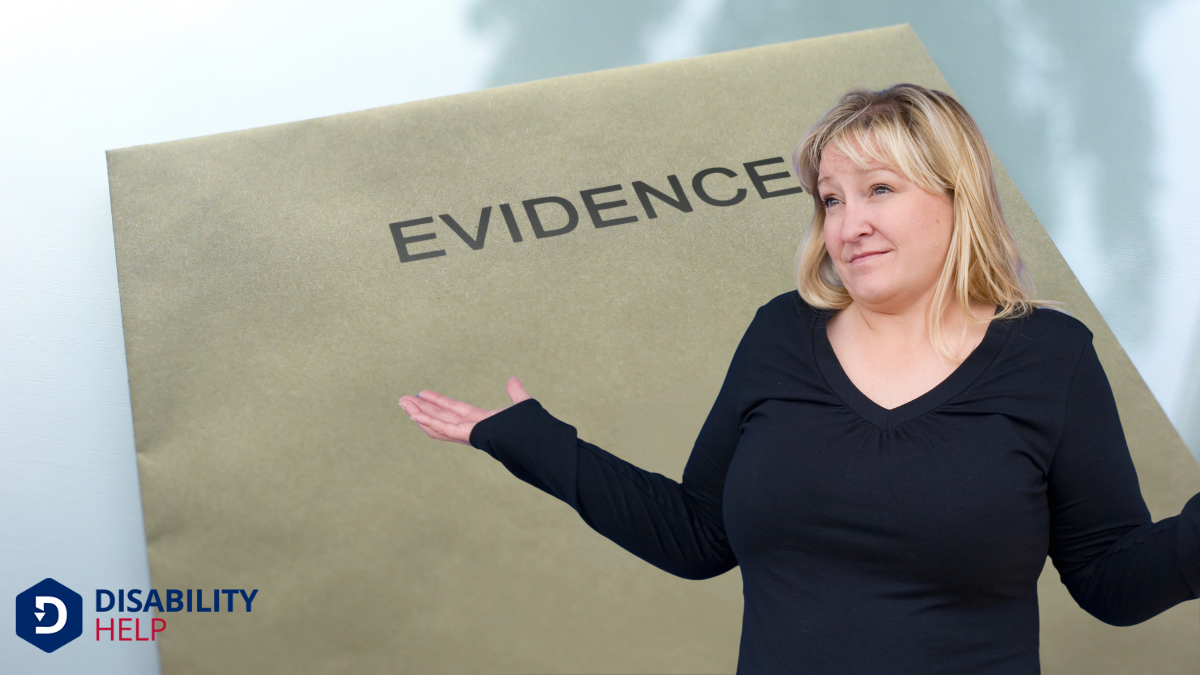When speaking to a disability judge, it's essential to avoid statements that might undermine your case. Saying things like "I can work if I have to" or "I just want the money" can suggest you're not as disabled as you claim. Admitting you haven't tried treatments or don't remember important details can hurt your credibility. It's crucial to articulate how your condition truly impacts your life. Curious about more pitfalls to steer clear of?
Key Takeaways
- Avoid stating "I just want the money," as it suggests financial gain over genuine disability concerns.
- Do not say "I can work if I have to," as it undermines claims of being unable to work due to disability.
- Refrain from claiming "My doctor said I shouldn't be here," as it dismisses the legal process and the judge's authority.
- Avoid stating "I haven't tried any treatments," as it questions your commitment to managing your condition.
- Do not frequently say "I don't remember," as it can raise doubts about your reliability and consistency.
I Can Work If I Have To
When you're in front of a disability judge, saying "I can work if I've to" might seem like a positive statement, but it can actually undermine your case.
This statement suggests you’re capable of working, which contradicts your claim of needing disability benefitsFinancial assistance provided to individuals who are unable to work due to a disability, such as Soc... due to an inability to sustain employment. The judge may interpret your words as an admission that your condition isn’t severe enough to prevent you from working.
It's essential to communicate how your disability genuinely affects your ability to maintain a job. Focus on providing specific details about your limitations and how they impact daily activities and potential employment.
Your goal is to help the judge understand the genuine challenges you face, not to imply you're capable of working.
I Haven't Tried Any Treatments

When you tell a disability judge you haven't tried any treatments, it can undermine your case's credibility.
Demonstrating attempts to manage your condition shows your commitment to improving your situation.
Without this effort, the judge might question the severity of your disability.
Importance of Treatment Attempts
Although it might seem overwhelming, making attempts to seek treatment is essential when presenting your case to a disability judge. Demonstrating that you've pursued treatment options shows your commitment to managing your condition.
It indicates that you're actively seeking ways to improve your situation, which can be a significant factor in your case. A judge will want to see that you've explored available medical advice, therapies, or medications, even if they haven't been successful.
This effort highlights your proactive approach and may help the judge understand the complexity of your condition. It's important to be fully transparent about your efforts, as it provides a clearer picture of your struggles and the limitations you face daily.
Seeking treatment underscores your dedication.
Impact on Case Credibility
Failing to pursue any treatment can greatly undermine your case's credibility before a disability judge. When you haven't tried any treatments, it may signal that your condition isn't as debilitating as claimed.
Judges often look for evidence that you've explored all avenues to manage your condition. By not engaging in treatment, you leave room for doubt about the severity of your impairmentA loss or abnormality of a body structure or function, whether physical, mental, or sensory, often a....
It's essential to demonstrate that you've actively sought help, whether through medication, therapy, or other medical interventions. This shows your commitment to improving your situation and provides tangible proof of your struggles.
Without this, a judge might question your dedication to addressing your health issues. Always be proactive and willing to discuss the steps you've taken towards treatment.
My Doctor Said I Shouldn't Be Here
It's important to remember that saying "My doctor said I shouldn't be here" can seriously undermine your case when speaking to a disability judge. Such statements might imply that you’re dismissing the legal process or the judge's role.
The judge needs to hear your personal testimony and assess your condition through the evidence provided. Instead of quoting your doctor, focus on explaining your symptoms and how they impact your daily life. Be specific and detailed.
Mention medical records and any limitations documented by your healthcare provider. Remember, it's about painting a clear picture of your situation. By articulating your experiences clearly, you’ll provide the judge with the information needed to make an informed decision regarding your disability claim.
I Don't Remember
Saying "I don't remember" can hurt your credibility with a disability judge, as memory lapses may raise doubts about your reliability.
Consistent testimony is key, so make sure you document important details before the hearing.
This preparation shows that you're organized and serious about your case.
Memory Lapses Impact Credibility
When you're testifying before a disability judge, your credibility is vital, and memory lapses can undermine it. Forgetting key details or frequently saying, "I don't remember," may raise doubts about your case.
It's important to understand that the judge relies on your testimony to piece together the reality of your situation. So, when memory fails, it can appear as an inconsistency or a lack of reliability.
Prepare beforehand to recall significant information about your condition, medical treatments, and how it affects your daily life. It's okay to admit genuine memory issues if they're part of your disability, but support this with medical evidence.
Practicing your testimony and organizing your thoughts can help guarantee that your account remains clear and credible.
Consistency in Testimony Matters
Although testifying before a disability judge can be challenging, maintaining consistency in your testimony is crucial. When you say, "I don't remember," it can create doubt about your credibility.
Here’s how to keep your testimony consistent:
- Recall Key Events: Focus on remembering significant events related to your disability. Even if some details are fuzzy, recalling the main events can make your testimony stronger.
- Use Clear Language: Avoid vague terms. Instead of "sometimes," specify frequency or duration to provide clarity.
- Stick to Facts: Share facts you’re certain about. Avoid assuming or guessing details that might lead to inconsistencies.
- Review Prior Statements: Familiarize yourself with previous testimonies to maintain consistency. This helps in presenting a coherent narrative before the judge.
Documenting Details Is Crucial
One of the most important aspects of testifying before a disability judge is documenting the details of your situation. When you're asked about your medical history or daily challenges, saying "I don’t remember" can weaken your case.
It’s essential to prepare by keeping detailed records of your symptoms, treatments, and any impacts on your daily life. Bring this documentation to your hearing to reference specific dates and events. This level of detail helps the judge understand your condition's severity and consistency.
If you forget something, having a well-maintained record allows you to confidently answer questions. Remember, the more precise and detailed your testimony, the stronger your case will be.
I Just Want the Money

Expressing a desire for financial gain as your primary motivation for seeking disability benefits can severely undermine your case.
Instead, focus on how your disability impacts your daily life and limits your capacity to work. A judge wants to see sincerity and genuine need.
Consider these points:
- Daily Challenges: Describe how your disability affects simple tasks like dressing or cooking.
- Work Limitations: Explain why your condition prevents you from maintaining employment.
- Medical Evidence: Share relevant medical records that substantiate your claims.
- Support Needs: Highlight any extra assistance you require from family or community resources.
I Didn't Follow My Doctor's Orders
Failing to follow your doctor’s orders can seriously affect the outcome of your disability case. Judges consider medical advice essential when evaluating your situation. Ignoring your doctor’s guidance might suggest that your condition isn't as severe as claimed or that you’re not taking your health seriously. This can lead to doubts about your credibility and commitment to recovery.
When you don't follow prescribed treatments, it's important to explain why. Maybe there were side effects, financial constraints, or the treatment was ineffective. Providing a valid reason shows you’re actively engaged in managing your health.
Document any alternative treatments or adjustments you've made, and discuss these with the judge. Demonstrating responsibility and transparency can strengthen your case, emphasizing your efforts to improve.
Everyone Says I'm Disabled
Although it might seem convincing to assert that everyone around you believes you're disabled, relying solely on others' opinions isn't enough to sway a disability judge.
To effectively communicate your situation, focus on your personal experiences and specific challenges. Consider these aspects:
- Daily Limitations: Describe how your condition affects everyday tasks, like dressing or cooking. Paint a clear picture of your struggles.
- Employment Impact: Explain how your disability impedes your ability to work. Be specific about tasks you can't perform.
- Social Interactions: Highlight difficulties in maintaining relationships or participating in community activities.
- Physical Symptoms: Detail the physical manifestations you experience, such as pain or fatigue.
I Don't Have Any Evidence

When facing a disability judge, claiming that you don't have any evidence to support your case can severely undermine your credibility. It suggests a lack of preparation and commitment, which doesn't inspire confidence in your claim.
You need to gather as much medical documentation, expert opinions, and personal records as possible to demonstrate your condition's impact on your daily life. Judges rely on concrete evidence to make informed decisions. Without it, you're asking them to take your word, which isn't enough in a legal setting.
Reach out to your healthcare providers for records, and consult legal professionals to guarantee you've covered all bases. Remember, thorough preparation shows that you take your case seriously and increases your chances of a favorable outcome.
Conclusion
When speaking to a disability judge, focus on clearly conveying your genuine experiences and the daily challenges your condition imposes. Avoid saying things like "I can work if I have to" or "I just want the money," as they can undermine your case. Consistently follow your doctor's advice and make honest efforts to seek treatment. Providing specific, consistent evidence strengthens your credibility. Remember, your goal is to paint an accurate picture of how your disability truly affects your life.






